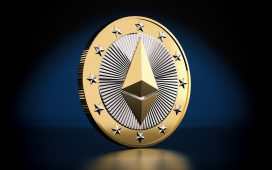Inside HQ2 at the grand opening of Amazon HQ2 in Arlington, Virginia, on June 15, 2023.
Amanda Andrade-Rhoades | The Washington Post | Getty Images
This report is from today’s CNBC Daily Open, our new, international markets newsletter. CNBC Daily Open brings investors up to speed on everything they need to know, no matter where they are. Like what you see? You can subscribe here.
BOE’s supersized surprise hike
The Bank of England raised interest rates by 50 basis points, bringing rates to 5%. Markets were betting on a 25-basis-point hike. But May’s inflation reading for the U.K. was a scorcher: Inflation last month remained unchanged from April, while core inflation actually rose from 6.8% to 7.1% year over year. If inflation remains stubborn, expect more surprises from the BOE.
Capital requirements hike
On the second day of his Senate testimony, Federal Reserve Chairman Jerome Powell said new regulations aren’t likely to apply to banks below $100 billion in assets. Those rules would increase the amount of capital banks need to maintain, among other conditions. Separately, FDIC Chair Martin Gruenberg said the rules are expected to kick in next year.
Uneasy EU-China relationship
Europe wants to reduce its economic dependency on China. That is to say, the bloc wants to diversify its supply chains, rely less on demand from the Chinese market and woo foreign investment from other places. However, the euro zone is wary of retaliation from Beijing — such as the country blocking exports from Lithuania — according to a senior EU diplomat who did not want to be named.
Mixed markets
U.S. markets mostly rose Thursday, as the S&P 500 and Nasdaq Composite snapped their three-day losing streak, while the Dow Jones Industrial Average remained virtually unchanged. Asia-Pacific markets, however, fell across the board Friday, with all major indexes losing around 1% as of publication time. Japan’s Nikkei 225, in particular, sank up to 2% as the country’s headline inflation rate dropped from 3.5% in April to 3.2% in May.
[PRO] Bearish market, overvalued stocks
Even with the recent rally in the S&P 500, the index is still trying to climb beyond the high it reached in January 2022 — which would usher in an official bull market. Yet market strategists from UBS and JPMorgan Chase and are already warning that the stock market may be overvalued.
Investors have been lulled by a sense of security that inflation in the U.S. is falling, albeit slower than hoped, and interest rates will gradually fall as the beast is slayed. That’s the engine behind markets’ astounding rally in recent weeks.
But investors are being rudely returned to a world they thought they had put behind them — a world, in other words, of continual rate hikes. Fed Governor Michelle Bowman thinks “additional policy rate increases will be necessary” — to the extent that they are “sufficiently restrictive” — so that inflation will drop further. Bowman, who is on the Federal Open Market Committee, essentially echoed Powell’s Wednesday comments that more rate hikes are necessary despite June’s pause. (“Pause” is a word Powell dislikes, by the way, which sheds light on how the Fed is thinking.)
The prospect of more hikes might be why investors are fleeing to technology stocks. Amazon, Apple and Microsoft all climbed yesterday. It sounds contrary, I know. Don’t tech stocks, dependent on growth, suffer the most from high interest rates, which erode the value of future earnings?
My sense is that investors see artificial intelligence as a moat around earnings, a barrier which rates cannot encroach. Well, that’s the hope, anyway.
Still, excitement over AI might not be enough to sustain the whole market. Despite adding close to 1% Thursday, the Nasdaq is on track to break its eight-week winning streak. Likewise, the S&P’s 0.37% gain might be too little to preserve its five consecutive weeks of closing in the green.
Some analysts hoped that bullish markets would charge forward, seeing red. But the hue in sight now seems less a matador’s red cape than traffic-halting red lights.
Correction: This article has been updated to correct the date of the S&P’s all-time high.











